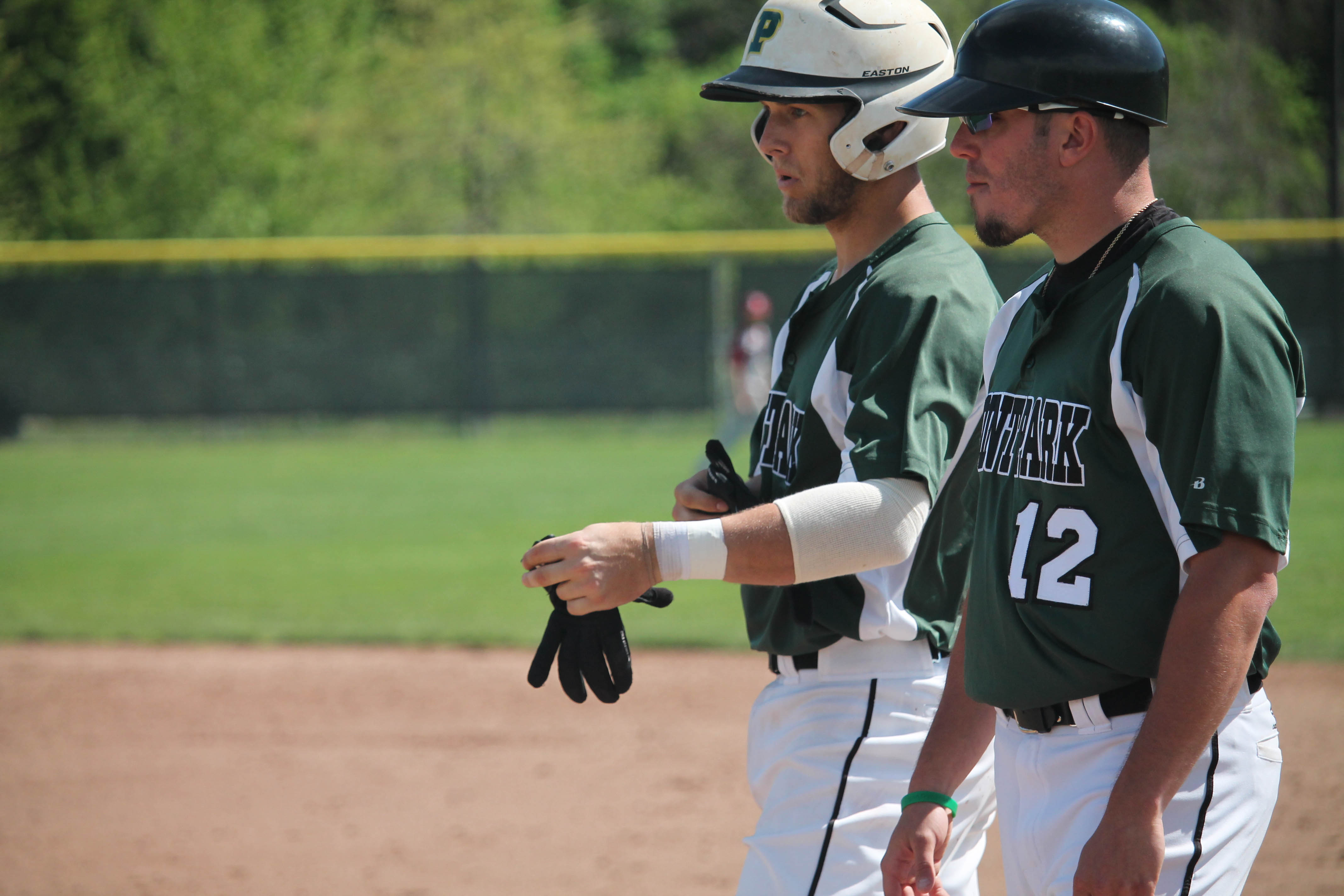Building Strong Coaches New fully-online M.Ed. in athletic coaching strengthens coaches and athletes
 Shane Conley (right), an assistant baseball coach at Point Park, is a student in the new M.Ed. coaching degree program.
Shane Conley (right), an assistant baseball coach at Point Park, is a student in the new M.Ed. coaching degree program.
The Point
Winter 2018
As a mother to two young boys who were sports fanatics, Darlene Marnich, Ph.D., professor and chair of Point Park University’s education department, knows how important coaches can be to a young person’s development.
"Whether a child or teenager is going to be a star player or one who sees lots of bench time, good coaching can help encourage that girl or boy to not only excel at their sport to the best of their ability, but also help them develop focus, empathy and self-esteem,” she said. Marnich’s time spent watching her sons play sports and interaction with coaches became the inspiration for the M.Ed. in athletic coaching, a fully-online master’s program graduating its first class this year. The second cohort begins in the spring of 2018.
Transforming coaching practices
The Master in Education in athletic coaching program is framed by the National Standards for Sports Coaches, established by the Society of Health and Physical Educators. These standards are expected by school and university administrators, athletes, parents and the public nationwide. Point Park’s Master of Education in athletic coaching program includes a focus on: how to effectively communicate to stakeholders, safety and emergency response, ethical decision-making, administering a coaching program and practical applications in the support and development of athletes’ skills.
“We wanted to approach coaching in the same reflexive and transformative way that we do all our education programs, which is to recognize the developmental and emotional differences of athletes of all ages and skill levels, said Marnich. The range of students in the program, and their varying backgrounds and experiences, help enhance the classroom dynamic as well.
“Some of our students have only been coaching for a few years and others are seasoned professionals looking to deepen their understanding of effective coaching practices,” she explained. Marnich believes educators who are also coaches “recognize and value the importance of further education in improving their skills and advancing their careers.”
For Molly Meehan, a student in the first class cohort and current high school varsity swim coach, the coaching program has been revelatory in many ways. “There are so many aspects of coaching that go beyond the technical and tactical skills of sports,” she said. According to Meehan, students in the program represent various sports and that most, if not all, had positive experiences as student athletes themselves.
“I think having the background as an athlete and now as a coach informs not only how you approach the coaching program but ultimately what you will bring back to your student athletes to ensure that all of them have positive experiences, no matter the skill level,” said Meehan.
A growing field
According to the National Bureau of Labor Statistics, athletic coaching is a field growing nationally as well as locally, with recent surveys indicating that approximately 10,000 coaches and scouts are employed in Western Pennsylvania. The fully online format was designed to provide flexibility for working professionals, especially teachers and those already coaching sports teams.
For Pennsylvania teachers, the graduate program will fulfill the 24 post-baccalaureate credits needed for an Instructional II certificate. Graduates of the program will be prepared for coaching opportunities in various settings including K-12, public or private colleges and universities, travel or club teams and professional sports teams.
As an assistant men’s basketball coach at Westminster College, Point Park alumnus and former Pioneers basketball star Chivas Whipple welcomed the opportunity to interact with coaches to learn new and innovative ways to implement techniques into his own coaching program. “The classroom interface was very easy to use and the teacher feedback has been impressive.”
Ultimately, said Marnich, "We want students to not go back to ‘business as usual’ when they finish the program and return to their coaching and teaching responsibilities. The goal of this program is for students to learn from our expert faculty, and each other, so that they not only become better coaches, but stronger mentors and educators.”
Text by Barbara Vilanova
The Point is the magazine of Point Park University.

